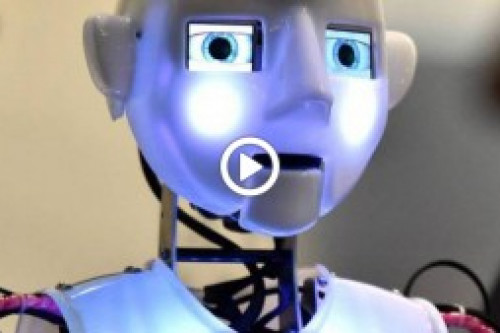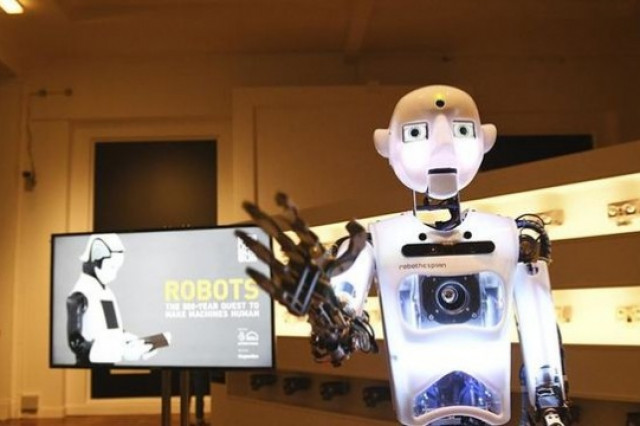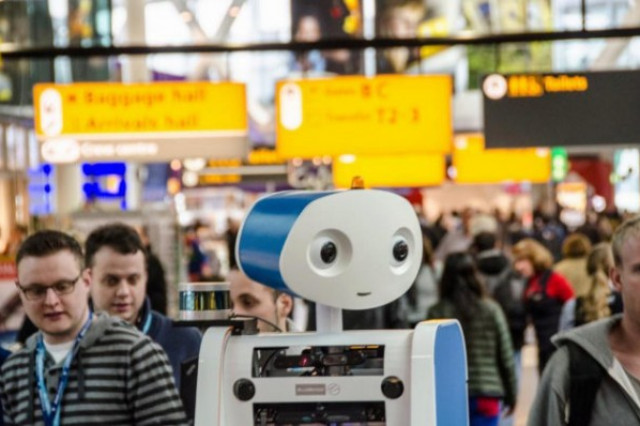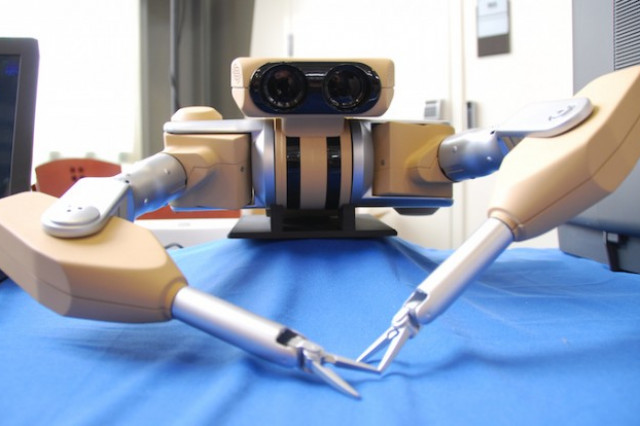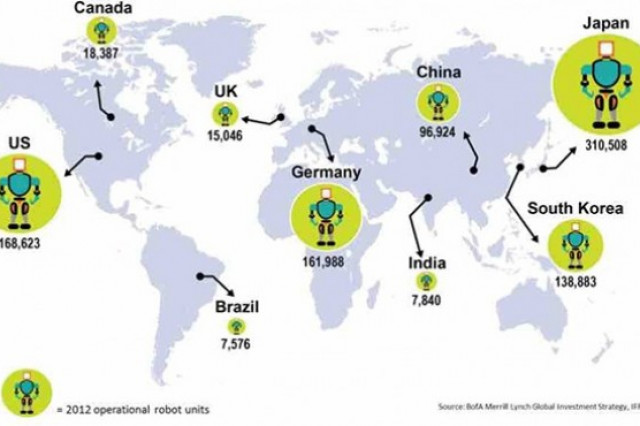"Do Androids Dream of Electric Sheep?" Is the title of a science-fiction tale, (genre cyberpunk), authored by Philip K. Dick, and adapted by Ridley Scott in the Movie Blade Runner. Dick died that same year, before the movie was released.

The action takes place after a nuclear war ended up killing most of the living beings, which leads to people having electric animals. The protagonist is Rick Deckard, an ex-cop and expert android hunter. In the story, we end up with androids of the latest generation, a model denominated Nexus 6, that is almost identical to human beings.
The novel deals with topics such as the imprecise limit between the artificial and the natural, the decay of life and society, as well as various ethical problems about androids.
The action takes place in 1992, several years after the radioactive rain caused by the Terminal World War destroyed much of the land. The radioactive dust had not originated in any country, nor had it been foreseen, and yet it had spread over much of the globe.
The United Nations encourages people to emigrate to colonies off the land to preserve the human race from the effects of radiation produced by war. One incentive is that each family that decides to emigrate will receive a bespoke android servant. In the novel the term "android" is generally used to refer to artificial beings of biological composition.
People live in chaotic cities
People who stay on earth live in chaotic cities where radiation causes disease and damage their genes. Having and caring for an animal is considered a symbol of social status and a moral responsibility, depending on the rarity of the species. The high cost of real animals makes them prohibitive. So they choose to purchase an artificial one to maintain their social position. The protagonist of the story, Rick Deckard, had a sheep that died and he replaced it with an electric replica. The companies in charge of creating, repairing and attending to electric animals are popular. Asking if the neighbour's animal is electric is considered impolite, more so than figuring out if a person's teeth, hair or internal organs are genuine.
The novel deals with topics such as the imprecise limit between the artificial and the natural, the decadence of life and society, as well as various ethical problems about androids
Androids are used in human colonies, mainly Mars, but many of them flee to the earth to escape from solitude and free themselves from the slavery which humans submit them to. They are made with organic elements and are physically indistinguishable from people. Civil servants like Deckard seek out and "remove" fugitive androids that usually portray themselves as humans, since they are prohibited from staying on Earth.
Bounty hunters apply tests like Voigt-Kampff's empathy to differentiate humans from androids. As androids cannot feel empathy, their emotional response is significantly different from that of humans, either in intensity or in response time.
The most significant cultural icon of the land is the "Amigo Buster", the jovial presenter of "The Friend Buster Show", which simultaneously does a radio and television programme 23 hours a day, from where someone deduces that it is a android. In its programmes, Buster attacks the "mercerism", movement based on the history of Wilbur Mercer, a man who lived before the War. He strives to reverse the putrefaction, the decay of the tomb world and ascend back to earth by climbing a huge slope. Their adversaries throw stones at him along the way, until Mercer reaches the summit and the cycle begins again.
Mercerism mixes the concept of a deity with a cycle of life-death-rebirth, in the manner of Jesus Christ, emphasizing union and empathy. It is very important for them to share their feelings. They believe that if a person experiences a feeling of happiness it is immoral to keep it to himself and not "merge with Mercer in an act of gratitude." Similarly, a depressed person can ease their depression by fusing with Mercer.
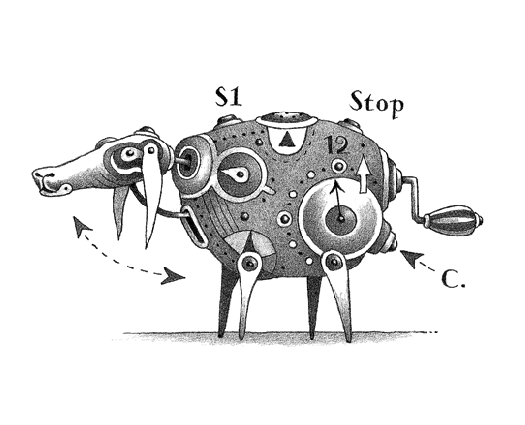
In a first reading of the novel, two main questions seem to emerge: the religious issue of "Mercerism" and the relationship between men and androids, but both themes are so closely linked that they lead to a single theme: reality, a recurring theme in novels by Philip K. Dick.
What seems real is false
Throughout the story, the idea of spiritual union between all human beings through a machine stands out, with which the feelings of each individual person are shared by the rest. Thus he delves into the idea that everything that seems real to humans is false, as with androids. On the other hand, in many respects, artificial objects are more perfect than the real ones, since they do not degenerate: electric animals do not get sick and human androids seem more aware of the importance of the concept of humanity than the men themselves. The unreal imposes itself on the real. The living is condemned to die and to degenerate; that which is not living will live there forever.
Throughout the story, the idea of spiritual union between all human beings through a machine stands out, with which the feelings of each individual person are shared by the rest
The narrative also states that the forms of real and artificial life are divided into hierarchies. Animals are considered enormously precious, humans receive less consideration and androids are simply insignificant. These groups are also subdivided. Humans among those who can emigrate outside the earth and those who, because of genetic defects, produced for the most part by radioactive dust, are not allowed to leave the planet (so-called "special" or "plover heads"); And the androids are continuously improving. Companies continuously create new models of androids that are superior to previous ones.
Two of Earth's most respected figures (Buster and Wilbur Mercer) could be artificial creations. Buster reveals in one of their programmes that the visions shown in the empathy box could be filmed from old Hollywood movies starring an alcoholic actor.
The world of "Do Androids dream of electric sheep?" is grey, desolate, full of silent empty apartments in progressive ruin, where everything seems to deteriorate minute by minute, simply because the earth is being abandoned.
(*) Excerpted from Wikipedia



